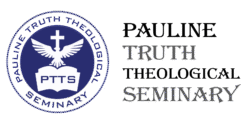23. 바울과 구약 인용(Paul’s Use of the Old Testament)
1. 바울과 구약 인용
Paul’s Use of the Old Testament
1) 과목 개요 (Course Overview)
(1) 이 과목은 바울 사도가 구약 성경을 어떻게 인용하고 해석하였는지를 탐구합니다.
(2) 바울의 서신서에서 구약 본문이 어떻게 신학적으로 재해석되었는지를 살펴보며, 초기 교회의 성경관과 해석 원리도 함께 다룹니다.
(1) This course explores how the Apostle Paul quoted and interpreted the Old Testament.
(2) It examines how Old Testament texts are theologically reinterpreted in Paul’s epistles, providing insight into the early church’s view of Scripture and principles of interpretation.
2. 강의 목표 (Course Objectives)
1) 바울 서신에 나타난 구약 인용 구절들을 파악한다.
2) 바울의 신학 안에서 구약의 역할을 분석한다.
3) 바울의 해석학적 접근 방식(문맥, 적용, 기독론적 해석 등)을 이해한다.
4) 유대교 전통과 바울의 해석을 비교한다.
1) Identify quotations from the Old Testament found in Paul’s letters.
2) Analyze the role of the Old Testament within Pauline theology.
3) Understand Paul’s hermeneutical approach (context, application, Christocentric interpretation, etc.).
4) Compare Paul’s interpretation with Jewish exegetical traditions.
3. 주요 주제 (Main Topics)
1) 바울 서신에서 인용된 구약 본문 사례 분석
Analysis of OT quotations in Pauline letters
2) 직접 인용, 암시적 인용, 재해석 구분
Distinguishing direct quotation, allusion, and reinterpretation
3) 바울의 구약 사용 목적: 율법, 약속, 복음의 연속성
Paul’s purpose in OT use: continuity of Law, Promise, and Gospel
4) 이사야, 시편, 창세기 인용의 신학적 의미
Theological significance of quotations from Isaiah, Psalms, Genesis
5) 로마서, 고린도전후서, 갈라디아서에서의 구약 사용
OT usage in Romans, Corinthians, and Galatians
4. 바울의 인용 방식 (Paul’s Quotation Style)
1) 본문의 재해석: 신약의 빛에서 구약 본문을 재해석
Reinterpretation of OT texts in light of the New Testament revelation
2) 기독론적 중심성: 구약의 성취가 예수 그리스도 안에서 완성됨
Christocentric focus — fulfillment of OT in Christ
3) 종말론적 적용: 구약 예언의 현재적 성취 강조
Eschatological application of OT prophecy in the present
5. 학습 결과 (Expected Learning Outcomes)
1) 바울이 구약을 어떻게 해석했는지에 대한 이해
2) 구약-신약 간의 신학적 연속성과 단절성에 대한 균형 있는 시각
3) 현대 신학과 설교에서의 바울의 인용 원리 적용 능력
1) Understanding of Paul’s interpretative method
2) A balanced view of theological continuity and discontinuity between OT and NT
3) Ability to apply Paul’s quotation principles in modern theology and preaching
